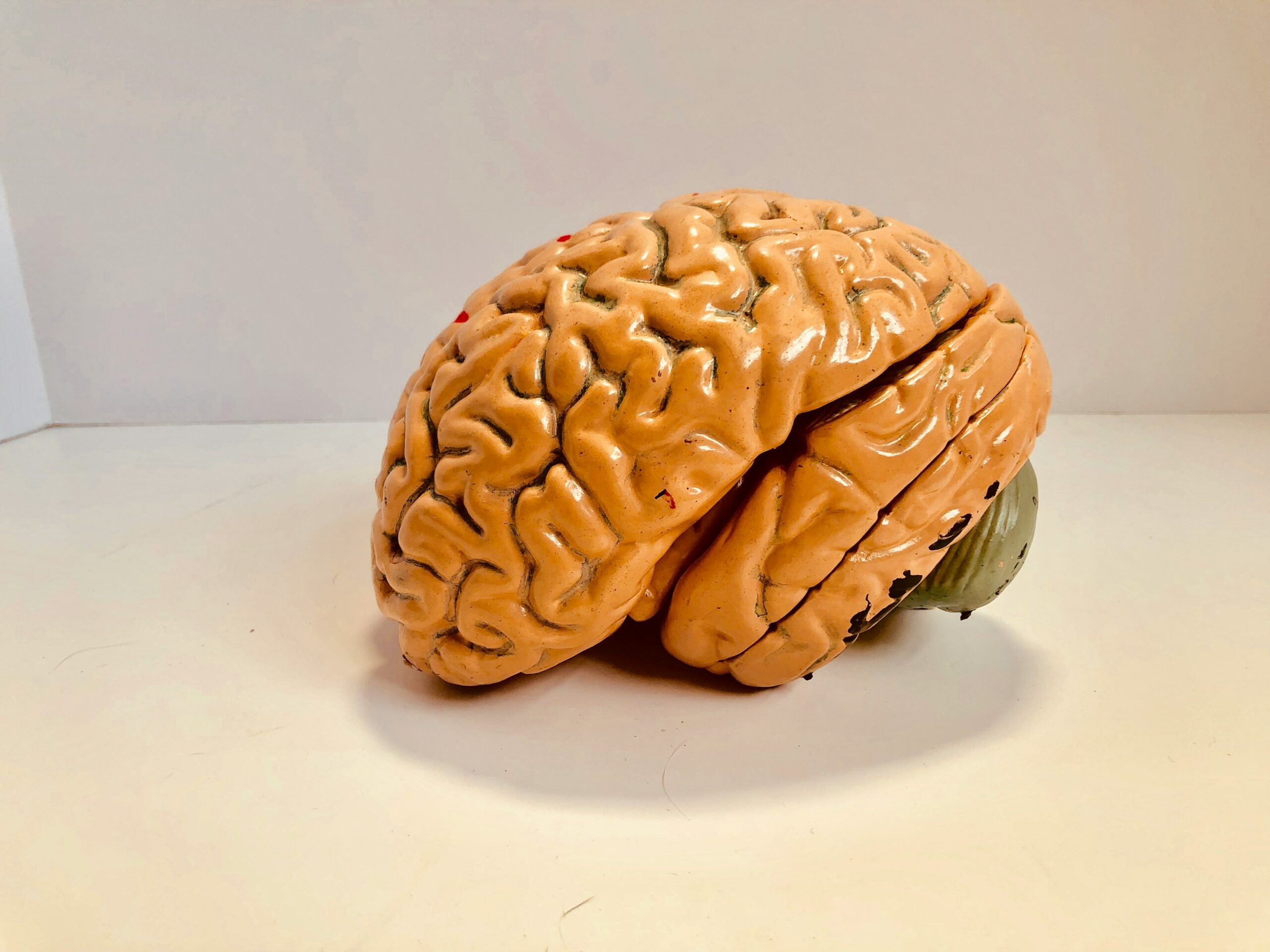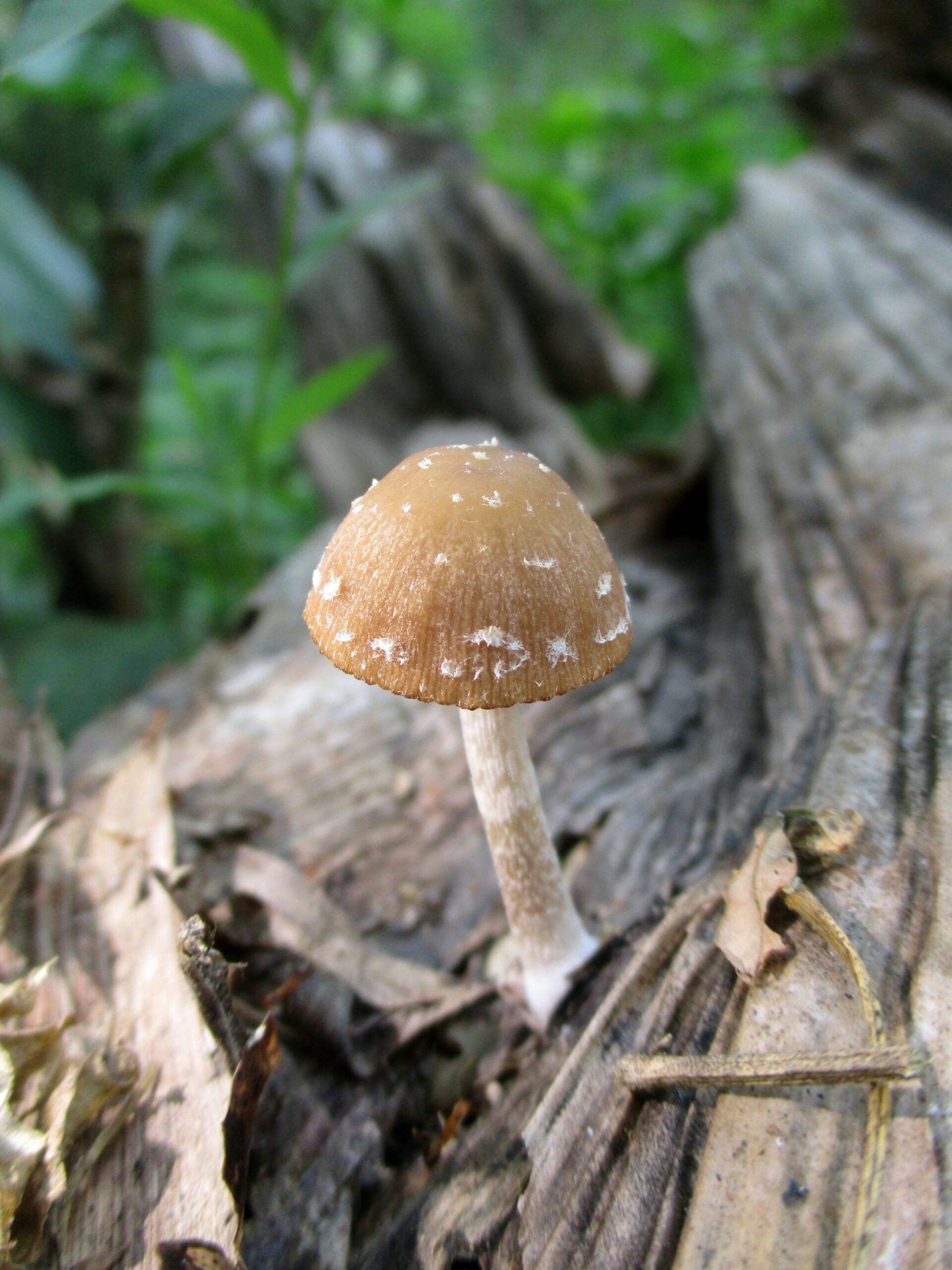Introduction
Alzheimer’s disease is a progressive neurological disorder that affects millions of individuals globally, causing memory loss, cognitive decline, and, eventually, the inability to carry out simple daily tasks. As the population ages, the prevalence of Alzheimer’s is expected to rise, making it a significant public health concern. While current treatments focus on managing symptoms rather than curing the disease, emerging research suggests that certain lifestyle interventions, including dietary modifications, may help delay its onset and progression.
One particularly promising area of research involves medicinal mushrooms, known for their extensive health benefits, including potential protective effects against cognitive decline. This article delves into the best medicinal mushroom supplements and their role in enhancing brain health, focusing on their potential to help delay Alzheimer’s disease. We’ll explore the science behind these fascinating fungi, how to incorporate them into your diet, and the convenience of mushroom coffee as an elegant solution for daily use.
Understanding Alzheimer’s Disease
What is Alzheimer’s Disease?
Alzheimer’s disease is the most common form of dementia, accounting for 60-80% of dementia cases. It is characterized by the deterioration of neurons in the brain, leading to memory loss, confusion, and changes in behavior and personality. Symptoms typically start mildly but worsen over time, severely impacting daily life.
How Alzheimer’s Disease Affects the Brain
Alzheimer’s disease is a progressive neurological disorder that causes the deterioration of neurons, the brain’s nerve cells, and their connections. This degeneration leads to the characteristic cognitive decline associated with the disease. Here are the key pathological features:
- Amyloid Plaques: These are abnormal clumps of beta-amyloid protein that accumulate between nerve cells. Amyloid plaques disrupt cell communication, leading to cell death and brain tissue loss.
- Neurofibrillary Tangles: Inside the neurons, tau protein fibers become twisted into tangles, which disrupt the cells’ transport system. This disruption results in cell malfunction and death.
These changes primarily affect the hippocampus, the region of the brain responsible for memory and learning. As Alzheimer’s progresses, it spreads to other parts of the brain, affecting various cognitive and functional abilities.
Signs and Symptoms of Alzheimer’s Disease
The symptoms of Alzheimer’s disease typically develop gradually and worsen over time, making early detection crucial. Here are the most common signs to watch for:
- Memory Loss: Difficulty remembering recent events, conversations, or names is often the first noticeable symptom. For example, forgetting an appointment or asking for the same information repeatedly.
- Confusion and Disorientation: Individuals may get lost in familiar places, forget the date or time, or fail to recognize familiar people. This can include not knowing where they are or how they got there.
- Difficulty with Complex Tasks: Challenges in planning, problem-solving, or working with numbers, such as managing finances, following a recipe, or organizing a schedule, become apparent.
- Language Problems: Struggling to find the right words, repeating phrases, or having trouble following and participating in conversations are common issues.
- Poor Judgment: Making uncharacteristically poor decisions, such as neglecting personal hygiene or engaging in risky behaviors, can be a sign of Alzheimer’s.
- Changes in Mood and Behavior: Increased anxiety, depression, irritability, or withdrawal from social activities may occur. Individuals might become easily upset, especially when out of their comfort zone.
- Personality Changes: Significant shifts in personality, such as becoming more suspicious, fearful, or aggressive, can also be indicative of the disease.
Who Usually Suffers from Alzheimer’s Disease?
Alzheimer’s disease primarily affects older adults, with the risk increasing significantly with age. Here are some key points about who is most at risk:
- Age: Age is the most significant risk factor for Alzheimer’s disease. After the age of 65, the risk of developing Alzheimer’s doubles approximately every five years. Nearly one-third of people aged 85 and older may have Alzheimer’s.
- Family History: Genetics play a role. Individuals with a parent, sibling, or child with Alzheimer’s are more likely to develop the disease themselves, suggesting a hereditary component.
- Genetics: Certain genes, such as the APOE-e4 allele, are associated with a higher risk of developing Alzheimer’s. Having this gene variant does not guarantee that an individual will develop Alzheimer’s, but it increases the likelihood.
- Gender: Women are more likely than men to develop Alzheimer’s, partly because they tend to live longer, increasing their overall risk.
- Lifestyle and Heart Health: Conditions that affect heart health, such as high blood pressure, diabetes, and high cholesterol, can also increase the risk of Alzheimer’s. Healthy lifestyle choices, such as regular exercise, a balanced diet, and not smoking, can help reduce this risk.
- Head Injury: A history of severe head trauma is linked to a higher risk of Alzheimer’s later in life. This includes injuries sustained from falls, accidents, or sports.
Current Treatments and Their Limitations
Current Alzheimer’s treatments aim to manage symptoms and improve the quality of life for patients and their caregivers. These treatments include:
- Medications: Drugs like cholinesterase inhibitors and memantine can temporarily improve symptoms but do not halt the disease’s progression.
- Lifestyle Interventions: Cognitive training, physical exercise, and a healthy diet can support brain health but have limited effectiveness once the disease has progressed.
Despite these interventions, there is a pressing need for more effective strategies to prevent or delay the onset of Alzheimer’s disease.
Medicinal Mushrooms: An Overview
History and Traditional Use of Medicinal Mushrooms
Medicinal mushrooms have been used for centuries in various cultures, particularly in Asia, for their therapeutic properties. Traditional Chinese Medicine (TCM) and Ayurveda have long recognized the health benefits of mushrooms like Chaga, Lion’s Mane, and Cordyceps. These mushrooms were revered not only for their nutritional value but also for their ability to enhance vitality, longevity, and overall well-being.
Key Types of Medicinal Mushrooms
Several types of medicinal mushrooms have been studied for their potential health benefits. Here are some of the most notable ones:
- Reishi (Ganoderma lucidum): Known as the “Mushroom of Immortality,” Reishi is valued for its immune-boosting and stress-reducing properties.
- Lion’s Mane (Hericium erinaceus): This mushroom is renowned for its neuroprotective and cognitive-enhancing effects.
- Cordyceps (Cordyceps sinensis): Traditionally used to increase energy and stamina, Cordyceps also has potential brain health benefits.
- Chaga (Inonotus obliquus): Known for its antioxidant properties, Chaga supports immune function and reduces inflammation.
- Tremella (Tremella fuciformis): Often used for its hydrating and skin-boosting benefits, Tremella also has antioxidant properties.
- Chanterelle (Cantharellus cibarius): Chanterelle also offers potential health benefits, including anti-inflammatory effects.
Nutritional and Medicinal Properties
Medicinal mushrooms are packed with bioactive compounds that contribute to their health benefits. These include polysaccharides, beta-glucans, triterpenoids, and antioxidants, which have been shown to support immune function, reduce inflammation, and protect against oxidative stress.
The Science Behind The Best Mushroom Supplements for Brain Health
Bioactive Compounds in Medicinal Mushrooms
Medicinal mushrooms contain a variety of bioactive compounds that can enhance brain health. Some of the key compounds include:
- Hericenones and Erinacines: Found in Lion’s Mane, these compounds stimulate the production of nerve growth factor (NGF), which supports neuron growth and health.
- Beta-Glucans: Present in many mushrooms, these polysaccharides have immune-modulating and anti-inflammatory properties.
- Triterpenoids: Found in Reishi and other mushrooms, these compounds have antioxidant and anti-inflammatory effects.
How The Best Mushroom Supplements for Brain Impact on it
Medicinal mushrooms impact brain health through several mechanisms:
- Neuroprotective Properties: Many mushrooms, particularly Lion’s Mane, have compounds that protect neurons from damage and promote their growth and repair.
- Anti-inflammatory Effects: Chronic inflammation is linked to cognitive decline and neurodegenerative diseases. Medicinal mushrooms can help reduce inflammation in the brain and body.
- Antioxidant Benefits: Oxidative stress is a significant factor in the aging process and the development of Alzheimer’s. Antioxidants in mushrooms like Chaga and Tremella combat oxidative damage.
Studies and Research on Medicinal Mushrooms and Cognitive Function
Numerous studies have explored the cognitive benefits of medicinal mushrooms. For example:
- Lion’s Mane: Research indicates that Lion’s Mane can improve cognitive function, particularly in older adults with mild cognitive impairment. A study published in the journal Phytotherapy Research found that participants who took Lion’s Mane supplements showed significant improvements in cognitive function compared to those who took a placebo.
- Boletus Edulis: Studies have shown that Boletus Edulis mushroom can reduce stress and improve mood, which indirectly supports cognitive health by reducing the risk of stress-related cognitive decline.
- Cordyceps: Research suggests that Cordyceps can enhance mental clarity and physical performance by increasing ATP production, the primary energy carrier in cells.
Best Medicinal Mushrooms for Health and Wellbeing
Lion’s Mane: The Best Mushroom Supplement for Brain
Lion’s Mane (Hericium erinaceus) is often hailed as the best mushroom supplement for brain, and for good reason. This mushroom is distinguished by its unique appearance, resembling a cascading waterfall of white spines. Lion’s Mane has been used in traditional Chinese medicine for centuries, primarily for its cognitive-enhancing properties. Now there is a buzz and everyone talk about modern mushrooms benefits
- Incredible Features and Compounds: Lion’s Mane contains hericenones and erinacines, compounds known to stimulate the production of nerve growth factor (NGF). NGF is crucial for the growth, maintenance, and survival of neurons. By promoting NGF production, Lion’s Mane helps enhance neuroplasticity, the brain’s ability to form and reorganize synaptic connections, especially in response to learning or after injury.
- How They Work: The best mushroom supplement for brain has compounds that penetrate the blood-brain barrier, directly influencing brain cells. This action supports cognitive function, improves memory, and may slow the progression of neurodegenerative diseases like Alzheimer’s. Additionally, Lion’s Mane possesses anti-inflammatory and antioxidant properties that further protect the brain from damage.
- Interesting Facts: Studies about the best mushroom supplement for brain have shown that Lion’s Mane can significantly improve cognitive function in older adults with mild cognitive impairment. In a 2009 double-blind, placebo-controlled clinical trial, participants who consumed Lion’s Mane extract mushroom coffee showed improved scores on cognitive function scales compared to the placebo group. Another fascinating aspect is that Lion’s Mane is not only beneficial for the brain but also supports gut health, which is increasingly recognized for its role in overall cognitive function.
Best Mushrooms for Energy and Focus
Cordyceps: Energy mushrooms
Cordyceps (Cordyceps sinensis) is a parasitic fungus that grows on the larvae of insects. While its origin may seem unusual, Cordyceps has been revered in traditional Chinese and Tibetan medicine for centuries for its powerful health benefits as the best mushrooms for energy and focus.
- Incredible Features and Compounds: Cordyceps contains adenosine, cordycepin, and other nucleosides that play a critical role in energy production at the cellular level. Adenosine triphosphate (ATP), the molecule that carries energy within cells, is directly influenced by these compounds. By enhancing ATP production, Cordyceps improves stamina, reduces fatigue, and boosts overall energy levels.
- How They Work: The increased ATP production translates to improved oxygen utilization during physical activity, which enhances endurance and reduces fatigue. This makes Cordyceps particularly popular among athletes as the best mushrooms for energy and focus. Additionally, the enhanced energy production extends to the brain, improving mental clarity, focus, and overall cognitive function.
- Interesting Facts: Research has shown that Cordyceps can improve exercise performance and reduce fatigue. A study published in the Journal of Alternative and Complementary Medicine found that elderly participants who took Cordyceps supplements experienced significant improvements in exercise performance and energy levels. Beyond physical benefits, Cordyceps has been found to enhance libido and sexual function, adding to its list of impressive benefits.
Best Immune Mushrooms
Chaga, Tremella, and Chanterelle: The Best Immune Support Mushrooms
These mushrooms are less commonly discussed but offer powerful health benefits, particularly as the best mushroom supplements for the immune system and overall brain health.
- Chaga (Inonotus obliquus): Known for its dark, charcoal-like appearance, Chaga is a potent antioxidant powerhouse and one of the best immune support mushrooms. It is rich in polysaccharides, betulinic acid, and melanin, which contribute to its high antioxidant capacity.
- How They Work: The antioxidants in Chaga help neutralize free radicals, reducing oxidative stress, which is linked to aging and neurodegenerative diseases. Betulinic acid, in particular, has been studied for its anti-cancer properties and its ability to enhance the immune response.
- Interesting Facts: Chaga has one of the highest ORAC (Oxygen Radical Absorbance Capacity) scores of any food, indicating its superior antioxidant activity. This mushroom has been used traditionally in Russian and Eastern European folk medicine for centuries, primarily for its immune-boosting and anti-inflammatory effects.
- Tremella (Tremella fuciformis): Also known as “snow fungus” or “silver ear,” Tremella is prized for its hydrating properties. It contains unique polysaccharides that can hold up to 500 times their weight in water.
- How They Work: Tremella’s polysaccharides not only hydrate the skin but also provide significant antioxidant benefits. This hydration extends to all cells in the body, including brain cells, supporting overall cellular health.
- Interesting Facts: Tremella mushroom powder has been used in Chinese cuisine and medicine for thousands of years. It is particularly popular in beauty products for its ability to improve skin elasticity and reduce signs of aging.
- Chanterelle (Cantharellus cibarius): Known for its vibrant yellow color and distinctive flavor, Chanterelle is a culinary favorite that also offers medicinal benefits.
- How They Work: Chanterelles are rich in polysaccharides and beta-glucans, which boost the immune system and provide anti-inflammatory benefits. These compounds support brain health by reducing inflammation and supporting the immune response. Interesting fact, due to its properties Chanterelles are one of the best natural solutions for weight management. Morning drinks with chanterelles are the best mushroom coffee for weight loss
- Interesting Facts: Chanterelles are not only immune support mushrooms. They contain significant amounts of vitamin D, which is crucial for bone health and mood balance. Also Chanterelle mushroom coffee is not only best immune mushroom but also considered as one of the best mushroom coffee for gut health.
Best Mushroom for Immortality
Reishi: The Mushroom of Immortality
Reishi (Ganoderma lucidum) is perhaps the most famous functional mushroom powder, often referred to as the “Mushroom of Immortality.” and medicinal mushrooms for pain relief. Its use dates back over 2,000 years in Chinese medicine.
- Incredible Features and Compounds: Reishi contains a wide range of bioactive compounds, including triterpenoids, polysaccharides, and peptidoglycans. These compounds contribute to its extensive health benefits, including immune modulation, anti-inflammatory effects, and antioxidant properties.
- How They Work: Triterpenoids in Reishi mushroom immune support have been shown to reduce inflammation and oxidative stress, both of which are linked to aging and neurodegenerative diseases. Reishi’s polysaccharides enhance immune function by promoting the activity of various immune cells, including macrophages and natural killer cells.
- Interesting Facts: Reishi immune support mushrooms is an adaptogen, meaning it helps the body adapt to stress and maintain homeostasis. This adaptogenic property is crucial for cognitive health, as chronic stress can negatively impact brain function. Studies have shown that adaptogen mushroom coffee with Reiashi can improve sleep quality, reduce fatigue, and enhance overall well-being, making it a true longevity tonic.
Incorporating Medicinal Mushrooms into Your Diet
Best mushrooms supplements for health: Powders, Extracts, Capsules, and Mushroom Coffee
Best mushroom blends are available in various forms, each with its advantages:
- Functional mushroom powders: Easy to add to smoothies, soups, and other recipes.
- Extracts: Best mushroom extracts in concentrated form provide higher doses of beneficial compounds.
- Capsules: Convenient for precise dosing. Best mushroom blend supplements as a mix of shrooms and other adaptogens can be found in capsules.
- Mushroom Coffee:The best mushroom coffee combines the benefits of medicinal mushrooms with the energy-boosting effects of coffee.
Among these, mushroom coffee stands out as a particularly convenient and enjoyable way to incorporate best medicinal mushroom supplements into your daily routine.
Best medicinal mushroom supplements. Dosage Recommendations
The appropriate dosage of top mushroom supplement varies depending on the specific mushroom and the individual’s health needs. It’s essential to follow product guidelines and consult with a healthcare professional, especially when starting a new supplement. Our team crafted an article on daily dose mushroom coffee and how to incorporate best organic mushroom supplement it into daily routine
How to Choose High-Quality Top Mushroom Supplements
When selecting best mushroom supplements, look for products that are:
- Organic: Best organic mushroom supplements are free from pesticides and other harmful chemicals.
- Non-GMO: Best organic mushroom supplements ensure the mushrooms are pure and naturally grown.
- Free from Fillers: Best mushroom extract without unnecessary additives.
- Sourced from Reputable Companies: Transparent about their sourcing and manufacturing processes.
Recipes and Tips for Including the Best Medicinal Mushroom Supplements in Your Daily Routine
Incorporating best medicinal mushroom supplements into your diet can be easy and delicious. The best time to take mushroom supplements is morning. This way you won’t forget to take it. Best functional mushroom supplements require consistency to make changes. Here are some tips on how to incorporate best mushroom supplement:
- Smoothies: Add a scoop of functional mushroom powder to your morning smoothie for an extra health boost. Warning: functional mushroom powder creates sediment
- Soups and Stews: Stir functional mushroom powder into soups and stews to enhance flavor and nutrition. Warning: Works predominantly with edible mushrooms and you need to add it each other day
- Mushroom Coffee: Start your day with a cup of the best mushroom coffee, combining the benefits of medicinal mushrooms with the energizing effects of gourmet coffee. Warning: FFCOFFEE Nespresso pods have an amazing balance of taste and health benefits. You can switch to it permanently.
- Mushroom Instant Coffee: best mushroom blend supplement with NO coffee. Warning: usually have earthy flavor or have added sugar to cover it.
Potential Side Effects and Precautions
Common Side Effects of Top Mushroom Supplements
While best functional mushrooms are generally safe for most people, some individuals may experience side effects, such as:
- Digestive Issues: Nausea, bloating, or diarrhea, especially when starting a new supplement.
- Allergic Reactions: Skin rashes or respiratory symptoms in those with mushroom allergies.
Interactions with Medications
Best functional mushrooms can interact with certain medications, such as blood thinners and immunosuppressants. It’s crucial to consult with a healthcare provider before adding them to your regimen, particularly if you are taking prescription drugs.
Who Should Avoid Best Medicinal Mushroom Supplements?
Individuals with the following conditions should seek medical advice before consuming top mushroom supplements:
- Mushroom Allergies: Those with known allergies to functional mushroom powder (aka all mushrooms).
- Pregnant or Breastfeeding Women: Safety during pregnancy and breastfeeding has not been well-studied.
Learn more about mushroom coffee during pregnancy HERE
- Certain Medical Conditions: People with autoimmune diseases or other chronic conditions should consult their doctor before taking top mushroom supplements.
The Future of The Best Medicinal Mushroom Supplements in Alzheimer’s Research
Emerging Research and Potential Developments
The potential of medicinal mushrooms in Alzheimer’s prevention and treatment is a growing area of research. Emerging studies on the best medicinal mushroom supplements are focusing on understanding the mechanisms through which these mushrooms exert their neuroprotective effects and exploring their efficacy in clinical settings.
Clinical Trials of Top Mushroom Supplements and What They Mean for the Future
Clinical trials are essential for establishing the safety and efficacy of the best medicinal mushroom supplements in preventing and treating Alzheimer’s disease. While animal studies and preliminary human trials of the best medicinal mushroom supplements are promising, more extensive clinical trials are needed to confirm these benefits and determine optimal dosages and formulations.
Conclusion
Incorporating the best medicinal mushroom supplements into your diet offers numerous health benefits, including potential protective effects against Alzheimer’s disease. These mushrooms, rich in bioactive compounds, can support brain health, enhance energy and focus, boost the immune system, and reduce the impact of stress or even you can find medicinal mushrooms for pain relief.
Mushroom coffee is an especially convenient and enjoyable way to integrate these powerful fungi into your daily routine.The best mushroom coffee – FFCOFFEE Nespresso pods provide an elegant solution, combining gourmet coffee with high-quality medicinal mushrooms. These pods are easy to use, fast to prepare, and offer a delicious way to enjoy the health benefits of medicinal mushrooms every day.
About FFCOFFEE
At Fungi Fusion Coffee all is about health, emotions, and overall well-being savoring the best mushroom coffee.
Embark on a journey of discovery with our six distinct and most popular coffee types – the SENSE, the LIFE, the RISE, the FEEL, the PEACE, and the JOY.
But that’s just the beginning; exciting developments lie ahead, including the forthcoming introduction of mushroom drip coffee bags that promise an unparalleled mushroom coffee taste experience. And remember, our commitment to excellence extends to infusing our best mushroom coffee pods with the finest mushrooms for energy, immune support, libido enhancement, and beyond. Don’t miss out on these transformative offerings.
Choose FFCOFFEE for a path to wellness. Explore our mushroom coffee subscription options on our website, where you can customize the type, duration, and frequency to suit your preferences. Also, subscribe to our newsletter not to miss our coffee blogs – you will definitely love these!
Your feedback is invaluable to us! Whether you share your FFCOFFEE experience in the comments below or tag us on social media – @fungifusioncoffee – your insights play a pivotal role in shaping our offerings. Also, feel free to contact Fungi Fusion Coffee if you have questions!
Together, we strive to deliver the ultimate in mushroom coffee excellence. You will learn more about Fungi Fusion Coffee on a daily basis. So, subscribe and follow us!
Here’s to a future filled with brightness and vitality, all thanks to FFCOFFEE and the delightful mushroom coffee taste it brings!
References and Further Reading
- Mori, K., Inatomi, S., Ouchi, K., Azumi, Y., & Tuchida, T. (2009). Improving effects of the mushroom Yamabushitake (Hericium erinaceus) on mild cognitive impairment: a double-blind placebo-controlled clinical trial. Phytotherapy Research, 23(3), 367-372. Link to Study
- Kawagishi, H., Ando, M., Sakamoto, H., Yoshida, S., & Ojima, F. (2004). Hericenones C, D, and E, stimulators of nerve growth factor (NGF)-synthesis, from the mycelia of Hericium erinaceum. Tetrahedron Letters, 35(10), 1569-1572. Link to Study
- Yeh, C. H., Chen, H. C., Yang, J. J., Chuang, Y. C., & Hsieh, L. P. (2006). The immuno-modulating effect of Ganoderma lucidum on the cytokine secretion profile of human peripheral blood mononuclear cells. Journal of Ethnopharmacology, 103(2), 181-190. Link to Study
- Koh, J. H., Suh, H. J., & Ahn, T. S. (2003). Hot-water extract from mycelia of Cordyceps sinensis as a substitute for antibiotic growth promoters. Biotechnology Letters, 25(7), 585-590. Link to Study
- Shashkina, M. Y., Shashkin, P. N., & Sergeev, A. V. (2006). Chemical and medicobiological properties of chaga (review). Pharmaceutical Chemistry Journal, 40(10), 560-568. Link to Study
- Wasser, S. P. (2011). Current findings, future trends, and unsolved problems in studies of medicinal mushrooms. Applied Microbiology and Biotechnology, 89(5), 1323-1332. Link to Study
Additional Resources for Interested Readers
- Books
- “Healing Mushrooms: A Practical and Culinary Guide to Using Mushrooms for Whole Body Health” by Tero Isokauppila
- “Medicinal Mushrooms: A Clinical Guide” by Martin Powell
By adding the best medicinal mushroom supplements to your routine, you can support brain health, enhance energy, boost your immune system, and potentially delay the onset of Alzheimer’s disease. Mushroom coffee, with its convenience and excellent taste, stands out as an elegant solution for incorporating these powerful mushrooms into your daily life.











